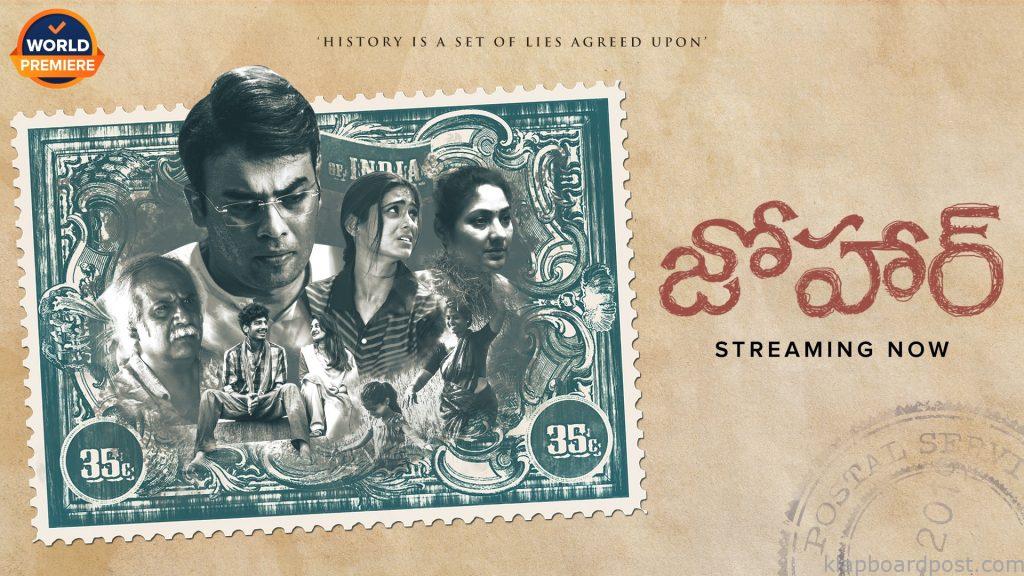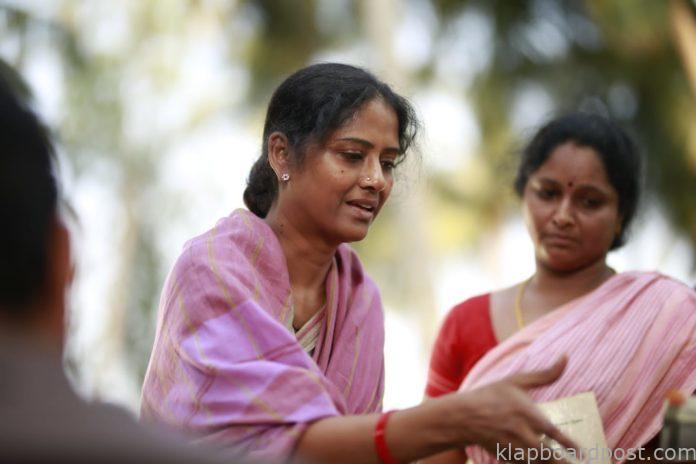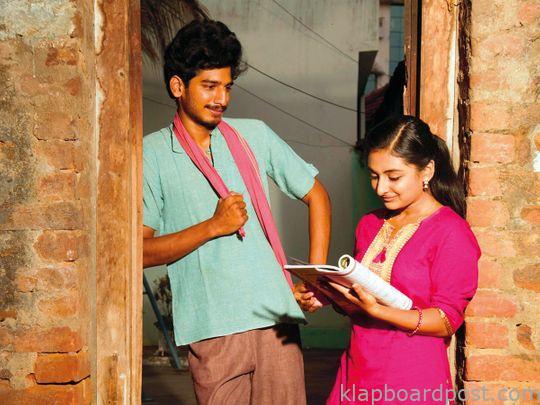Srivathsan Nadadhur
The CM of a Telugu state has just been murdered under mysterious circumstances. Even before tears trickle down his son’s eyes, he sets out on a bid to preserve his father’s legacy and would pull all stops to unleash a sympathy wave among the masses, directing it towards a plan to build the world’s tallest statue in his memory. But at what cost? A single parent who’s taken to farming, an idealist running a modest hostel for the orphans, a small-time, roadside circus artiste with an ambition to be a sprinter, a youngster on the cusp of academic glory – all are to bear the brunt of his actions. What connects them all? Johaar is a scathing critique on modern-day politics, an anthology narrative that manages to leave a lump in your throat.
The film takes its own sweet time to establish its premise and keeps you wondering about the thread that connects its subplots– and when the lid is off, Johaar is incredibly reflective. The first time director Teja Marni is unafraid of the stinging nature of the drama, but it is apparent that his storytelling certainly needed more finesse and better character establishment. The road towards its ambitious culmination is slightly bumpy. Not all the subplots come together so efficiently, but its interpretative ending makes up for all its minor glitches and has you thinking long after the film ends. The diversity of the subplots merit attention but it’s left to the cast to fill the holes in the storytelling aspect.

The conflicts in the stories are all heart wrenching and yet unidimensional. The director needed to have given more time for the viewer to invest in them. One wishes the viewer got to know more about what convinced a 16-year-old girl to elope with a chaiwallah to chase her academic pursuits. The Varanasi backdrop suits the subplot really well but the narrative doesn’t utilise the same to its fullest effect. One would have wished to see more conviction in the story of the veteran freedom fighter and his commitment to stand up to the education of the orphans. One would have wanted to know more about the challenges of the roadside circus artiste’s transformation into a professional sprinter and with a greater purpose. What works best here? It’s how the storyteller ends each of these subplots and binds them under a single umbrella.

The Easwari Rao subplot about a single parent fighting hard to keep her ailing child alive is the film’s lifeline by a long stretch. The film’s emotional beats are its sincerest best here and you are moved by the gut-wrenching quality . The political backdrop is the film’s major strength and Teja Marni has made a conscious effort to understand the inner workings of a political party. Johaar strikes a chord because it tells how the misuse of a tax payer’s money by a politician could lead to a society’s doom in simplified terms. What if Shankar decides to make a small-budgeted film in a rooted, realistic setting minus the larger-than-life exterior and vigilantism? Johaar may be the answer.
Actor Chaitanya Krishna is the glue that holds the film’s together – he looks every bit the menacing, scheming son of a former CM. His performance and dialogue delivery bear the right element of aura and style to pull off the antagonism in his role with elan. Easwari Rao is cast extremely well in the part of a single mother crying for hope, while young actors Ankith Koyya and Esther Anil do their bit to lend authenticity to their backstories. Subhalekha Sudhakar goes slightly overboard to bring alive the patriotic dimension of the role. Naina Ganguly gets the physicality for her character right than her performance. PVL Narasimha Rao and Rohini Molleti sink their teeth into the parts in their minimal screen time.

The music of the film, by Priyadarshan, but for the innovatively structured rap number Idi Varanasi, remains largely unmemorable and could have well made the difference in registering a stronger impact on the viewer. Cinematographer Jagadeesh Cheekati within his limited resources does well to lend an identity to most of his locales. Efficient CG work gives the film a definitive edge. Despite all the limitations, it’s appreciable that Teja Marni lets his superbly ideated story shine with a strong emotional charge.
Johaar has a metaphoric quality in the very seed of its story – would the height of a statue go onto decide the height of a person’s stature in the memory of the public? The examples and parallels to the ways of the real-life political parties are many in this case and this is a story that does well to hold a mirror to such indulgent, ridiculous practices. The imagery with which the director Teja Marni ends the story haunts you much beyond the viewing. Though it could have fared better on execution, it is a story that deserves an audience and will, unfortunately, be relevant for many years to come – that factor alone should convince you to watch it.













